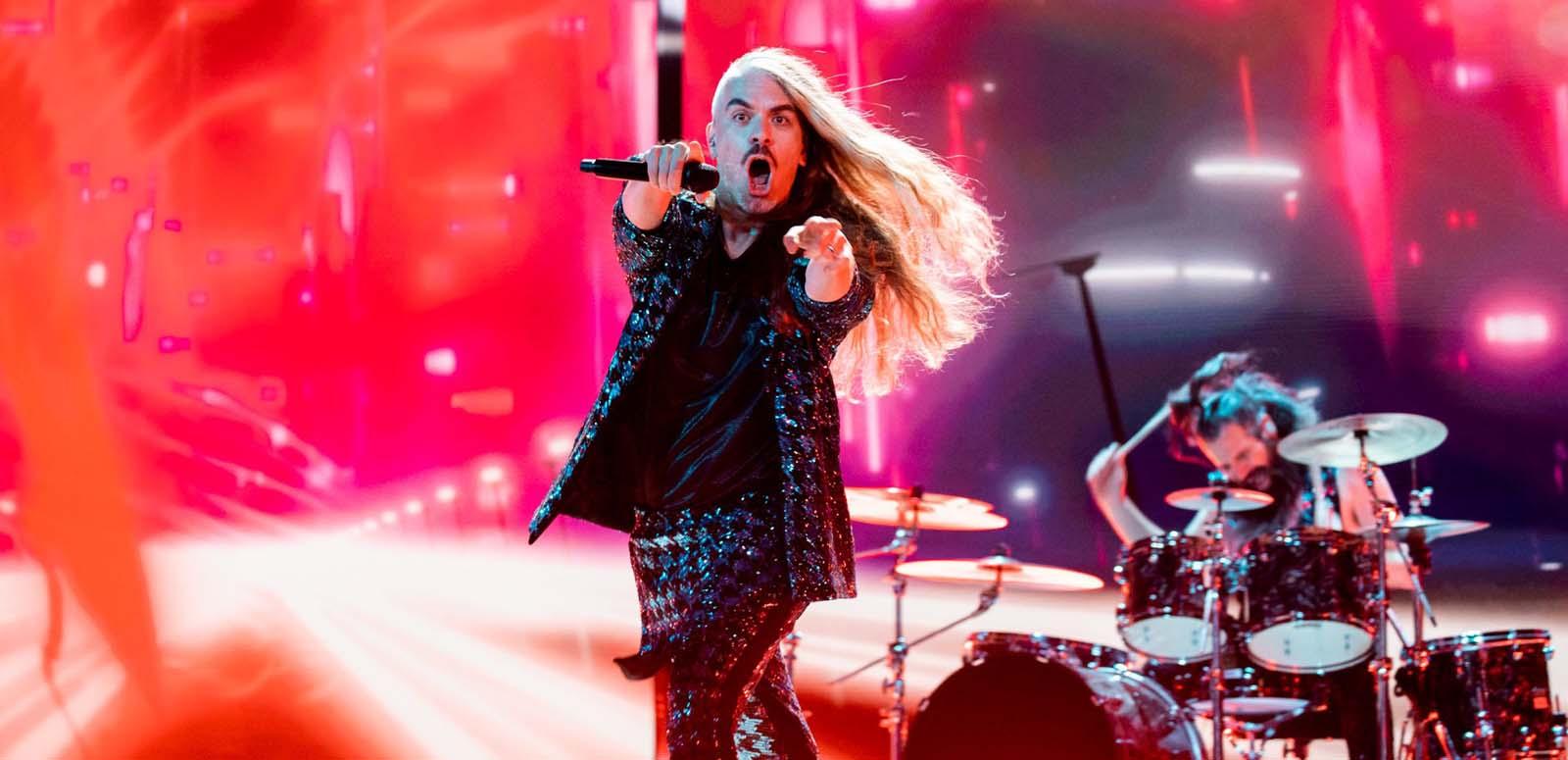Australia's long-running affection for the Eurovision Song Contest has translated into some impressive results since officially joining the competition in 2015.

Australia's long-running affection for the Eurovision Song Contest has translated into some impressive results since officially joining the competition in 2015.
The Eurovision Song Contest, which began in Switzerland in 1956, has long been popular in Australia. Its initial popularity was boosted by a wave of migrants from southern, eastern and northern Europe settling in Australia in the 1950s and 60s. But knowledge of the contest grew exponentially in the 1970s during the time of ABBAmania in Australia.
The Swedish quartet had their international breakthrough after winning the contest in 1974 with 'Waterloo' (incidentally beating Olivia Newton-John's performance of 'Long Live Love', which finished fourth). SBS began screening the contest in 1983, in the channel's third year of broadcasting, and it built a steady following.
After Jessica Mauboy performed as an interval act at the second Eurovision semi-final at Copenhagen in 2014, Australia was invited to perform in the grand final of the 60th contest, in Vienna in 2015. Guy Sebastian was our first official selection and he did Australia proud, with 'Tonight Again' finishing in the Top 5, as you can see in this news report from May 2015:
Guy Sebastian competes at Eurovision 2015. ABC News Canberra, 24 May 2016. NFSA title: 1448758
This news report by ABC Europe correspondent Barbara Miller offers concise but comprehensive coverage of the 2015 contest in Vienna. As well as covering the winner, voting controversy (around the runner-up Russian entrant) and Australia's participation and noteworthy result, the round-up of the Grand Final expertly captures the celebratory feel of the night with its themes of love and tolerance and noisy, enthusiastic audience.
As a launching pad for its artists, Eurovision has as big a reach as ever. The 2022 contest had an estimated television audience of over 160 million people in Europe. Italian rockers Måneskin won the contest in 2021 and conquered the global charts with their follow-up releases.
Other recent entries – like 'Arcade' by Duncan Laurence (representing the Netherlands, 2019, 1st place) and 'Snap' by Rosa Linn (Armenia, 2022, 20th) – exploded in popularity after finding a new audience through TikTok.
Back in 2015, this NITV news story reports the immediate boost that Guy Sebastian's performance had on sales of 'Tonight Again', which landed in the Top 10 everywhere from Estonia to the Bahamas:
Guy Sebastian at Eurovision 2015. NITV News, 25 May 2015. NFSA title: 1533049
This short news segment focuses solely on how Guy Sebastian's Eurovision performance has boosted the sales and popularity of his song 'Tonight Again'. The short clip of him on stage is sufficient to appreciate his polished, energetic and tightly choreographed routine and hear the powerhouse vocal delivery that left the arena audience understandably cheering.
Australia's best result to date came in Stockholm in 2016 when Dami Im placed first in the Second Semi-Final, topped the Grand Final jury vote and came second overall with 'Sound of Silence'.
This news story reports on the night and Dami's 'sensational' performance:
Dami Im takes second place at Eurovision 2016. Ten Eyewitness News, 15 May 2016. Courtesy: Network Ten. NFSA title: 1475043
This upbeat news story treats Dami Im's second place finish at the Eurovision Song Contest Grand Final in Stockholm as a deserved triumph. It contrasts her dramatic on-stage performance – with its thrillingly high and sustained notes – with her charismatic and relaxed off-stage persona, as she reflects on the night. It's a nice touch to include commentary from her passionate fans (the 'Dami Army') and teachers and students at her former school in Brisbane.
Australia achieved a third consecutive Top 10 result (out of 42 countries) at the 2017 contest in Kyiv, Ukraine when proud Yorta Yorta and Gunditjmara man Isaiah Firebrace finished 9th with his song 'Don't Come Easy'.
Two years later, in Tel Aviv, Kate Miller-Heidke's performance of 'Zero Gravity' saw Australia take their staging game to another level. Like Dami Im, Miller-Heidke qualified first in her semi-final. While Australian entries have benefited from strong jury support, winning over the partisan popular European vote has been more challenging. As this report and discussion on Sunrise the next morning shows, she had to settle for 9th place in the Grand Final:
Panel discussion about Eurovision 2019. Sunrise, 20 May 2019. Courtesy: Seven Network. NFSA title: 1696250.
This clip includes an excerpt of Kate Miller-Heidke's gravity-defying performance of 'Zero Gravity' at the Eurovision Grand Final in 2019. Sunrise panellist Gretel Killeen accurately describes it as 'magical' and 'superlative' as Kate impressively hits high notes and performs live while swaying side-to-side and balancing on a pole, an extraordinary piece of staging that's in complete harmony with the song's lyrics about not being held down.
In 2023, Australia sent Perth progressive metal band Voyager to Liverpool in the UK (hosting on behalf of 2022 winners Ukraine) to compete with 'Promise'. Sydney-based Andrew Lambrou also brought an Australian flavour to the European stage, representing Cyprus with 'Break a Broken Heart'.
Voyager won Semi-Final 2 and came 9th at the Grand Final on 13 May in Europe (the morning of 14 May in Australia), while Andrew Lambrou placed 7th in Semi-final 2 and a respectable 12th overall (out of 26 countries) in the Grand Final.
Main image: Danny Estrin (on vocals) and Ashley Doodkorte (drums) during Voyager's second rehearsal performance of 'Promise' on the Eurovision Song Contest stage in Liverpool, UK on 5 May 2023. Photo: Chloe Hashemi and EBU.
The National Film and Sound Archive of Australia acknowledges Australia’s Aboriginal and Torres Strait Islander peoples as the Traditional Custodians of the land on which we work and live and gives respect to their Elders both past and present.